Discover The Food Chain
The Food Chain

517 Episodes
Reverse
From pizza delivery to emergency aid, are autonomous aircraft the future? Ruth Alexander looks into whether drones are a feasible alternative to delivery drivers and traditional air drops. We hear how fast food and groceries are being delivered into suburban back gardens in Helsinki and Dublin and to a waterside collection point in Hong Kong. Is this technology something we might see everywhere soon? Ruth looks at its advantages and limitations and finds out how drones are carrying essential food to remote communities in Madagascar.Taking part were Danny Vincent, BBC Hong Kong reporter, Ville Lepalä, the CEO and co-founder of Huuva foodhall, Bobby Healy, the CEO of Manna Aero, Santanu Chakraborty, chief executive officer of Bal Raksha Bharat – Save the Children India and Hedley Tah from the United Nations Humanitarian Air Service, which is run by the World Food programme.Produced by Rumella Dasgupta.Image: A drone is flying against a stylised blue sky background. It is holding a white box which says Food Delivery on it in black letters. (Credit Getty Images/ sarawuth702)
Turmeric has been revered for thousands of years, not just for its mellow taste but for its golden colour and its supposed health giving properties. Rumella Dasgupta looks at its history, its uses in food and medicine and talks to scientists who have studied the spice. She finds out what they've learned about its fabled medicinal qualities and whether it's really worth paying for expensive turmeric lattes and turmeric supplements. Featuring Dr Kathryn Nelson, Prof Amit Garg, Ragini Kayshap and Seema and Sarla Nagpaul.If you would like to get in touch with the show, please email thefoodchain@bbc.co.uk Producer: Lexy O'Connor (Image: a teaspoon of golden turmeric powder sits on a spoon, against a bright green background. Credit: G/ Getty Simonkr)
You've got to be full of passion to make it as a top chef. It's a highly skilled and physically demanding job that comes with long hours.Ruth Alexander talks to three celebrated and talented chefs from three different continents about the highs and lows of their careers. They tell Ruth why they love the job so much and whether chef culture has changed in the years they've been working in kitchens. Featuring May Chow, Chantel Dartnall and Sean Kenworthy.
If you would like to get in touch with the show, please email: thefoodchain@bbc.co.uk
Image: A chef in a white jacket sharpens a big knife in a professional kitchen. Credit: Getty images / Fertnig.
For millions of us around the world, the day hasn't begun until we've had our first cup of coffee. Ruth Alexander traces our love affair with coffee back through history, to the wilds of Ethiopia where it was first discovered. She experiences some of the ancient traditions built around coffee which still endure today and asks why this bitter drink has always had such a hold over us. And does it matter if we enjoy a coffee or three every day? Ruth finds out what's it doing to our brains and bodies, and whether we really need to worry about kicking this ancient habit. Produced by Lexy O'Connor If you would like to get in touch with the show, please email: thefoodchain@bbc.co.ukImage: Three roasted coffee beans float on a light green background. Credit: Getty/Jose A. Bernat Bacete
Pepper is ubiquitous at the dining table, but arguably most of us don’t know much about it. In this programme John Laurenson finds out about the pepper plant – how it is grown and harvested and the range of flavours it can offer. He learns about the history of this spice and why it was once so revered, and the ways in which you can use it today to make your food not just tastier, but also healthier. If you’d like to contact the programme you can email thefoodchain@bbc.co.uk.Produced and presented by John Laurenson.Image: a cartoon wooden pepper mill with specks of ground pepper coming out of it, floats on a blue background. (Credit: Getty/yurumarukko)
How confident would you feel about complaining if a restaurant meal was not up to scratch? Restaurateurs in the UK, South Africa and the United States compare stories of the most outrageous complaints they’ve received, and how they were dealt with. They tell Ruth Alexander how increasing numbers of customers are "weaponising" the threat of negative online reviews. And if you’re someone who struggles to complain when things go wrong, there’s advice on how to make your voice heard calmly and assertively. If you would like to get in touch with the show, please email: thefoodchain@bbc.co.uk Produced by Lexy O'ConnorImage: A young woman is arguing with a waiter in a cafe. She has a pastry on her plate and is holding a cup of coffee. Credit: Getty/Wavebreak Media
How much food is the “right” amount - and why is it so hard to work that out?Ruth Alexander explores the world of portion sizes, starting with the rise of “portion distortion” in the United States, where supersized sodas and giant restaurant plates became the norm. Nutritionist Lisa Young explains how this shift happened, and what it’s meant for public health.In São Paulo, dietitian Marle Alvarenga shares new research comparing Brazil, France, and the US, revealing how culture and globalisation shape what feels like a normal portion. Why are French plates so much smaller - and meals so much slower - than in Brazil or America?And psychologist Lenny Vartanian in Sydney explains the powerful pull of portion size on our behaviour: why bigger servings make us eat more, even when we know better, and why education alone isn’t enough to change our habits.If you would like to get in touch with the show, please email: thefoodchain@bbc.co.ukProducer: Izzy GreenfieldPhoto: Three spoons showing different portion sizes (credit: getty)
Listeners to BBC World Service told us they hate it when fellow diners chew noisily or talk with their mouth full. But what is polite at mealtimes can vary wildly according to where in the world you are and who you are with.Ruth Alexander visits London's City of Westminster College to meet some of its teenage students, to find out about their different backgrounds and what good manners mean to them. She visits an exclusive private members club in the heart of London's West end to talk to Rupert Wesson, a director and coach at the British etiquette institution Debrett’s. And she hears from Japanese language tutor Chika Nakagawa about the rules that govern mealtimes in Japan.Plus what if you are thrown into a world you weren't prepared for? After tough beginnings and through sheer determination Reggie Nelson built a career in finance. He tells Ruth about his extraordinary path to success and how he got through his first formal business dinner.And what about when a restaurant meal brings out the worst in a customer? Mo Abedin, owner of Sticky Rice Thai restaurants in Dubai and Abu Dhabi talks about how he and his staff deal with the nightmare diners who have forgotten their manners.Producer: Lexy O'Connor(Image: A bearded man in a shirt and tie is eating a meal in front of a red background. He is shovelling a big fork full of noodles into his mouth whilst staring at his mobile phone. Credit: Getty Images/Group4 Studio)
Have you tried Dubai chocolate, hot honey or the fruit sando? They’re just a few examples of viral food trends which got everyone talking on social media. Rumella Dasgupta talks to creators and product developer to find out how much work goes into creating the next big thing in food. She hears how there’s often years of work behind the product that seems to suddenly be the latest craze. It might look as though some food trends go viral overnight, but entrepreneur Mike Kurtz explains how creating his brand Mike’s Hot Honey took years of hard work. Product developers Katie McDaid and Robert Craggs tell Rumella how their jobs involve travelling the world to find the next big thing in food. Plus chef and food writer Pierre Thiam, explains how he’s been working tirelessly for decades to bring the ancient West African grain Fonio to worldwide attention. We’d love to hear about the viral foods you’ve tried and what you thought of them. You can email the team at thefoodchain@bbc.co.uk Producer: Lexy O’Connor
Self-confessed crisp lover Ruth Alexander traces the story of the crisp or potato chip, starting with a tasting experience matching fine wines and “rubbish crisps” at a wine bar in the northern English city of Manchester. With the help of journalist and crisp historian Natalie Whittle, Ruth finds out about the commercial beginnings of the potato chip in the fine dining rooms of nineteenth century New York. She meets the chef who travels the world searching for new taste sensations to develop into a packet of crisps for snack giant Frito-Lays. Can you guess which flavours nearly, but not quite, made it onto the shelves? Ruth also talks to salty snack expert Jolene Ng of Mintel, who researches the role crisps play in modern life. And with Japan renowned for its unusual flavours, Ruth meets Makoto Ehara, the boss of one of the country’s biggest potato chip makers Calbee, who tells her about the threat climate change poses to the future of the potato chip industry. If you would like to get in touch with the show, please email: thefoodchain@bbc.co.uk Produced by Lexy O’Connor Photo: A woman in a bright pink jumper is smiling as she pushes a supermarket trolley through the potato crisp aisle. Credit: dowell / getty images
High prices, busy lives and the rise of intermittent fasting mean more people are skipping breakfast. This week, Ruth Alexander speaks to three experts in nutrition about whether that matters. She finds out what it’s best to eat for your first meal of the day and when is best to have it.
Experts Courtney Peterson, a researcher in intermittent fasting and associate professor at the Harvard TH Chan School of Public Health in the United States.. Professor Alexandra Johnstone, a nutrition scientist based at The Rowett Institute at the University of Aberdeen in Scotland snd Marianella Herrera, an associate professor in public health nutrition at Central University of Venezuela and visiting lecturer at Framingham State University in the US, share their insights.
If you would like to get in touch with the show, please email: thefoodchain@bbc.co.uk Producer: Izzy Greenfield
Image: A bowl full of cereal and a spoon (credit: Getty)
Bottom trawling is one of the most widely used - and most destructive - fishing practices in the world. Dragging heavy nets across the seabed damages fragile ecosystems, depletes global fish supplies, and puts the livelihoods of small-scale fishers at risk.In this episode of The Food Chain, Rumella Dasgupta speaks to John Worthington, one of the last remaining fishermen in Fleetwood, UK, who fears a proposed ban on bottom trawling in Marine Protected Areas could end his business. Fisheries economist Dr Rashid Sumaila of the University of British Columbia explains the global consequences of trawling, from overfishing to illegal and unregulated catches.On the coast of West Africa, Aissata Daouda Dia, Head of Advocacy at Blue Ventures, tells us hom much coastal communities rely on local catch. Nana Kweigyah from the Canoe and Fishing Gear Owners Association of Ghana, describes how foreign industrial trawlers are devastating coastal communities. And in Malaysia, Adrian Poon of the Cinnamon Group explores the challenges of sourcing fish sustainably in a market dominated by cheaper, trawled seafood.Producer: Izzy Greenfield
Image: Getty
The quality of food in care homes for the elderly can be underwhelming. Ruth Alexander talks to the people highlighting the issue and finding ways to bring nutrition and comfort back on the menu. Dr Lisa Portner, a medical doctor and researcher at the Berlin Institute of Health at Charite, outlines the inadequate diet offered by three nursing homes she studied in Germany. Australian restaurateur and food writer Maggie Beer tells how she came to set up the Maggie Beer Foundation, which aims to research the issues, raise awareness and offer culinary training. Ronald Marshall explains the simple ways he found to help carers understand the food preferences of his mum, who was diagnosed with dementia in 2020. And Navjot Gill-Chawla recounts the conversations she had with South-Asian Canadians living with dementia and their families, as a PhD Candidate in Public Health at the University of Waterloo in Ontario. When the subject of care homes came up, she says food was uppermost in their minds. If you would like to get in touch with the show, please email: thefoodchain@bbc.co.ukAnd if you'd like to try Maggie's brownie recipe featured in the show, you can find it in full on our website.Producer: Beatrice Pickup (Photo: Two cooks in a care home kitchen are smiling as they prepare a tray of brigh orange roast pumpkin. Credit: Sam Kroepsch)
From ancient Egyptian pyramid builders to French chefs, garlic has been prized, feared, and even used to ward off evil. In this episode, Rumella Dasgupta explores garlic’s journey through history and across cultures - from its medicinal roots and rich folklore to its starring role in kitchens worldwide. Featuring chefs, historians, and dietitians, we uncover how this pungent bulb became a global favourite - and ask the ultimate question: is garlic really good for us? Producer: Izzy Greenfield
Image: A bulb of garlic split in half to reveal cloves Credit: Getty
The World Health Organisation says close to 60 million people are living with dementia; and there are 10 million new cases every year. But could what we eat help to prevent it?Three guests who've been exploring the potential for diet to help prevent dementia tell Ruth Alexander about their findings. We hear from Professor Christy Tangney of Rush University System for Health in the United States – she co-created the MIND diet; Anne-Marie Minihane, Professor of Nutrition and Genetics or Nutrigenetics as it’s known, at Norwich Medical School at the University of East Anglia in the UK; and Dr Lizette Kuhn, a dietitian in Pretoria, South Africa.If you would like to get in touch with the show, please email: thefoodchain@bbc.co.ukProduced by Izzy Greenfield and Alistair Kleebauer(Image: two sides of a brain; one made up of fruits and vegetables, and the other a sketch. Credit: Getty Images)
Dementia is a syndrome associated with a decline of brain function that can affect memory, thought processes and behaviour. In some cases this can impact people’s ability to shop, cook and eat a meal. The most common form of dementia is Alzheimer’s Disease. In this programme Ruth Alexander meets people living with dementia and their families, to hear about the ways in which a diagnosis can impact mealtimes. Ruth meets Alan and Amy Lambert in Manchester, England. Alan was diagnosed with Alzheimer’s Disease in 2024 and his daughter Amy lives with him. They share some of the techniques they’ve developed at home to support Alan. For Ruby Qureshi in Canada, cooking was a huge part of her life before being diagnosed with Alzheimer’s in 2020. Ruth hears how her husband Pasha Qureshi has joined her in the kitchen in a supporting role. Jo Bonser in Nottingham, UK shares her experiences of supporting her mother who lived with vascular dementia and in 2016 stopped eating and drinking. Jo has gone on to set up a company, Dignified Dining that offers training in this area. And Aideen McGuinness is a registered dietitian working in the Memory Assessment and Support Service in Country Wexford Ireland, and co-author of a guide on dementia and nutrition. If you would like to get in touch with the show, please email: thefoodchain@bbc.co.uk Produced by Beatrice Pickup. (Image: Alan and Amy Lambert sat at the kitchen table with a bowl of soup and plate of toast. Credit: BBC)
Something as simple as sharing a meal or utensils can carry social stigma for the millions born into the bottom of India’s caste system, a social structure that divides people into different groups. In this programme Devina Gupta explores the foods of the Dalit community, historically considered at the very bottom of the caste system. She hears how many dishes evolved from necessity, due to low incomes and lack of available food and speaks to people looking to record and share these dishes with future generations. Devina meets people who identify as Dalit to talk about the discrimination they have experienced in their communities and workplaces as a result of their family’s social status, and how it can be particularly hard to find work in the food industry.If you’d like to contact the programme you can email thefoodchain@bbc.co.uk. Producer Beatrice Pickup. (Image: some foraged green leaves being washed in a bowl of water. Credit: BBC)
What’s at stake when a child has their first meal in a new home? For children entering care, especially those who have faced food insecurity, that first plate of food can be a big moment. In this programme, Ruth Alexander explores how food and mealtimes can help children feel safe and give them a sense of belonging. She meets Jessica-Rae Williamson, a 21 year old care leaver from Manchester, England, who still remembers the first meal she ate with her foster family, aged 13. In Wrexham, Wales, Ruth meets long-term foster carers John and Viv, Cath and Neil and Rosemary, who have opened their homes to dozens of children through Foster Wales. They discuss their strategies for dealing with picky eating and hoarding. Dr Katja Rowell, feeding expert and author of the book “Love Me, Feed Me: The Foster and Adoptive Parent’s Guide to Responsive Feeding”, gives her counter-intuitive tips for avoiding mealtimes becoming a battleground. And Melissa Guida-Richards, author of the book “What White Parents Should Know About Transracial Adoption”, shares her experience of being adopted from Colombia by Italian and Portuguese parents living in the US and her subsequent search for her Colombian heritage through food. This programme contains discussion of food poverty and insecurity, and disordered eating. If you’ve been affected by any of the issues raised and need support, speak to a health professional. If you would like to get in touch with the show, please email: thefoodchain@bbc.co.uk Produced by Beatrice Pickup. (Image: a partly eaten plate of spaghetti bolognese sat on a child's knee.Credit: Getty Images/BBC)
Protein is a health and fitness buzzword – plastered on packaging, prioritised in diets and praised by fitness influencers. But is our preoccupation with protein overshadowing another nutritional essential – fibre? Ruth Alexander explores the science, and marketing, behind protein’s popularity with expert guests Dr Emma Beckett, a food and nutrition scientist and communicator in Australia, and author of You Are More Than What You Eat; physician and social media creator Dr Karan Rajan, who is the author of This Book May Save Your Life; Scott Dicker from SPINS market research company in Chicago; Paul Kita, deputy editor of Men’s Health Magazine in the US.Producer: Izzy Greenfield
It can be the difference between life and death for your character, signal you’re on a hostile planet or in a sumptuous world, or can even give you the whole basis for a game. In this week’s Food Chain we hear where the ideas for some of the most disgusting and delicious foods in games come from, and how to recreate them in real life. Video game creator Tim Cain tells us why food was such an important tool in his games Fallout and The Outer Worlds. Author and gamer Cassandra Reeder tells us why she started making entire recipe books based on food from video games, and how important is food in gaming? Video game enthusiast Harriet tells us why it's an essential tool for escapism. If you would like to get in touch with the show, please email: thefoodchain@bbc.co.uk
Presenter: Ruth Alexander
Producers: Izzy Greenfield and Hannah Bewley




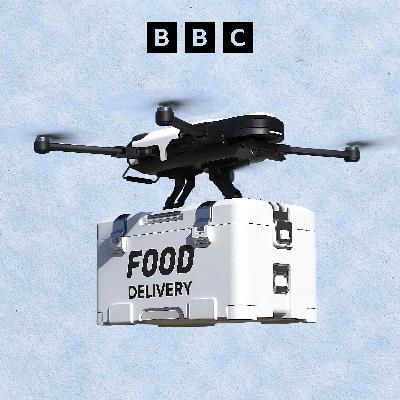

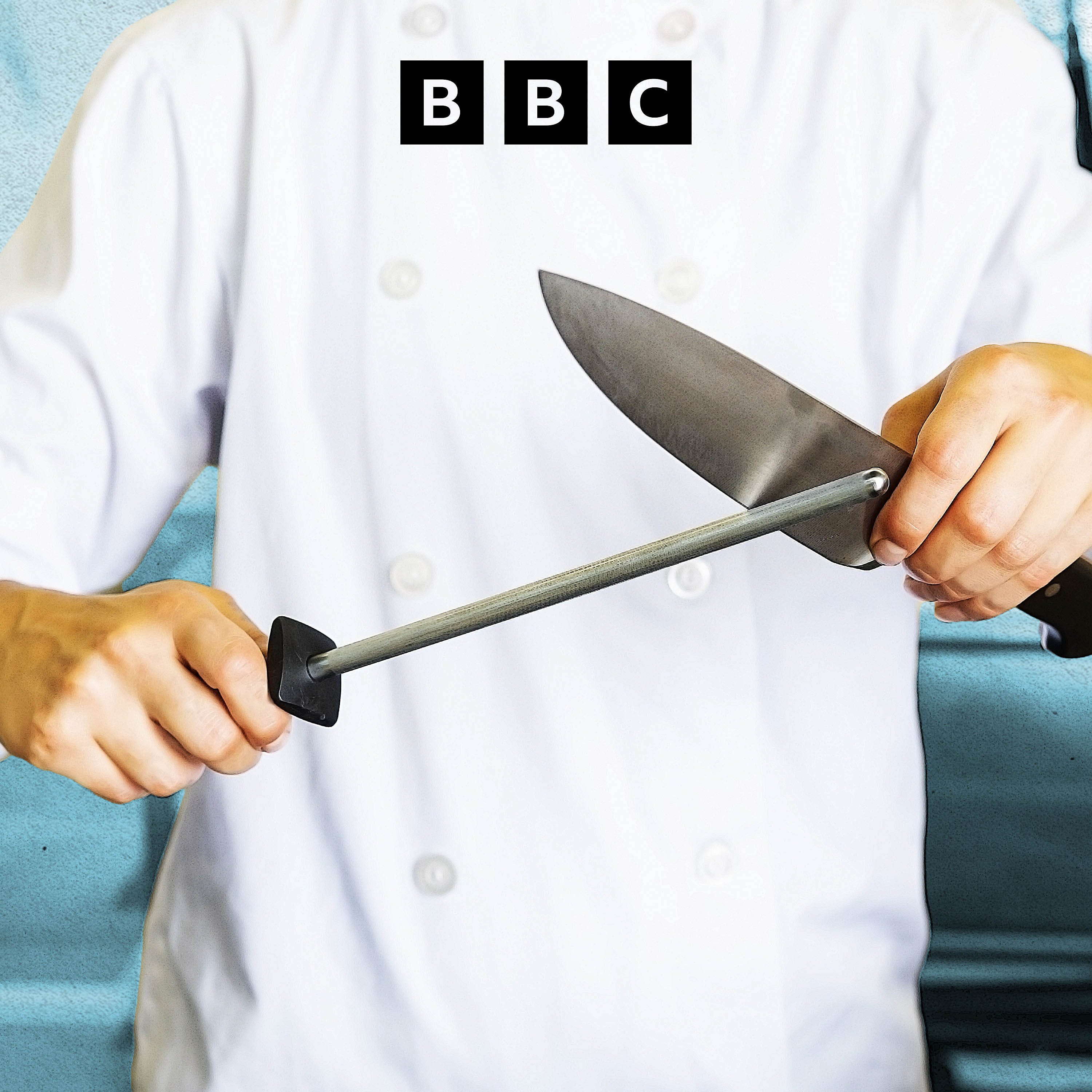

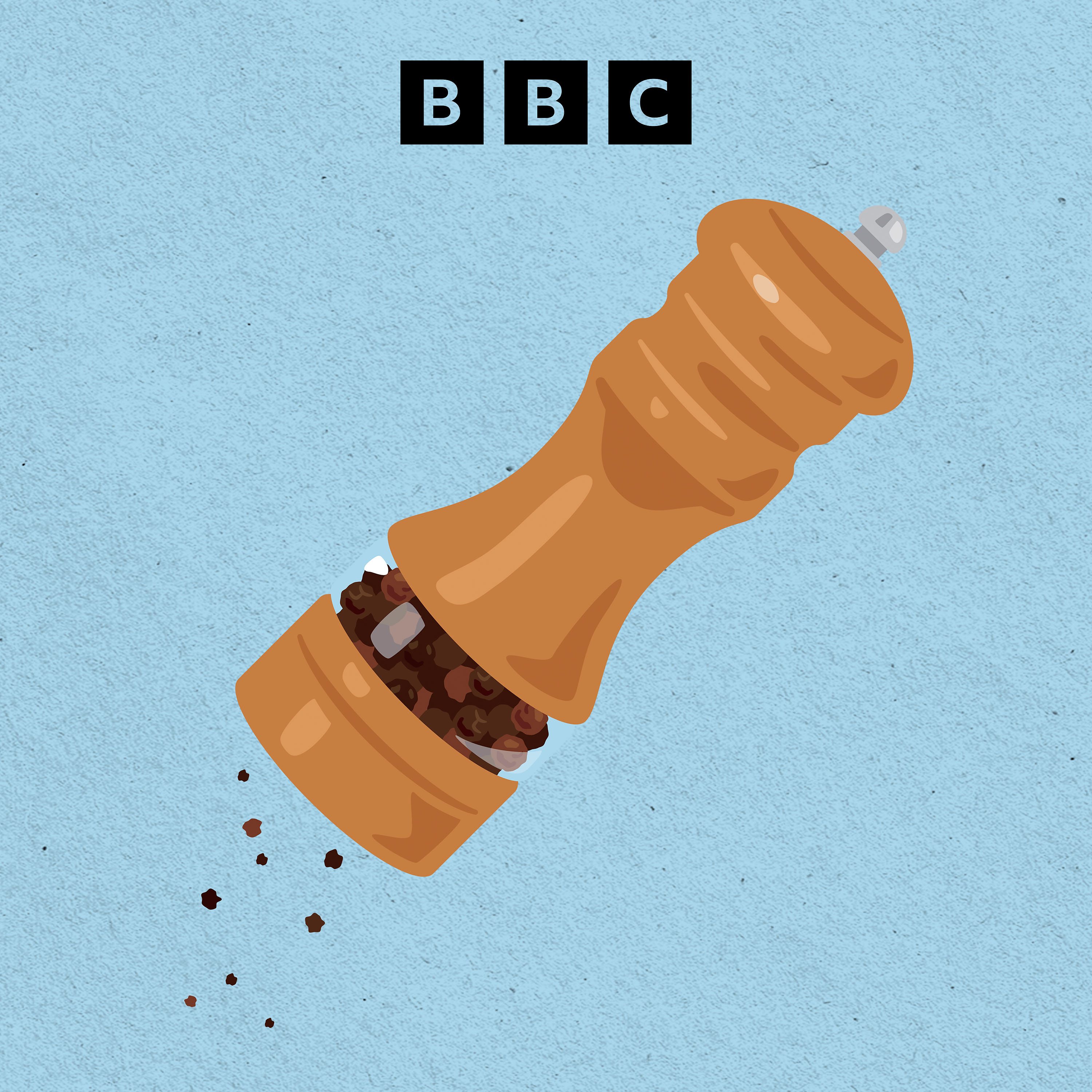
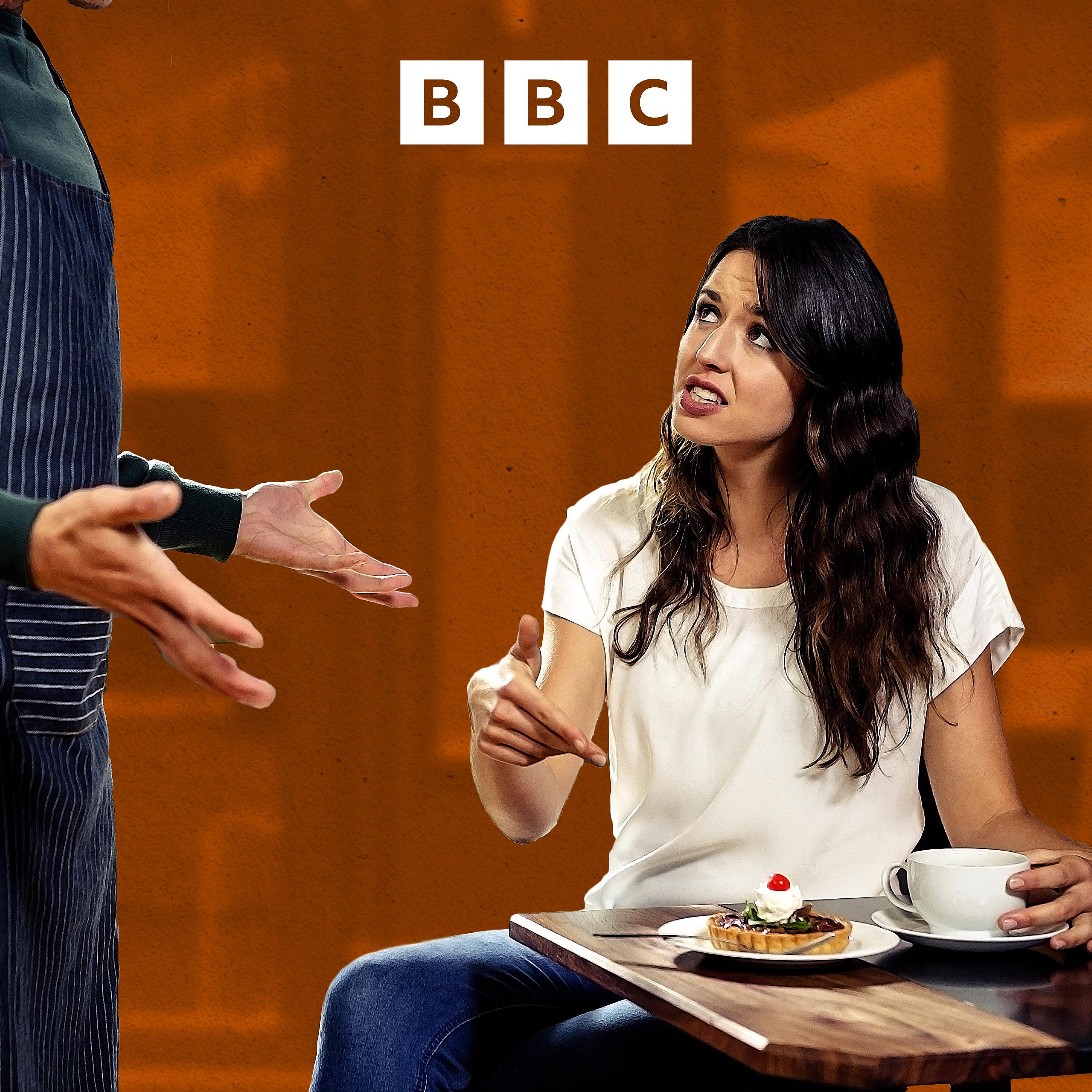
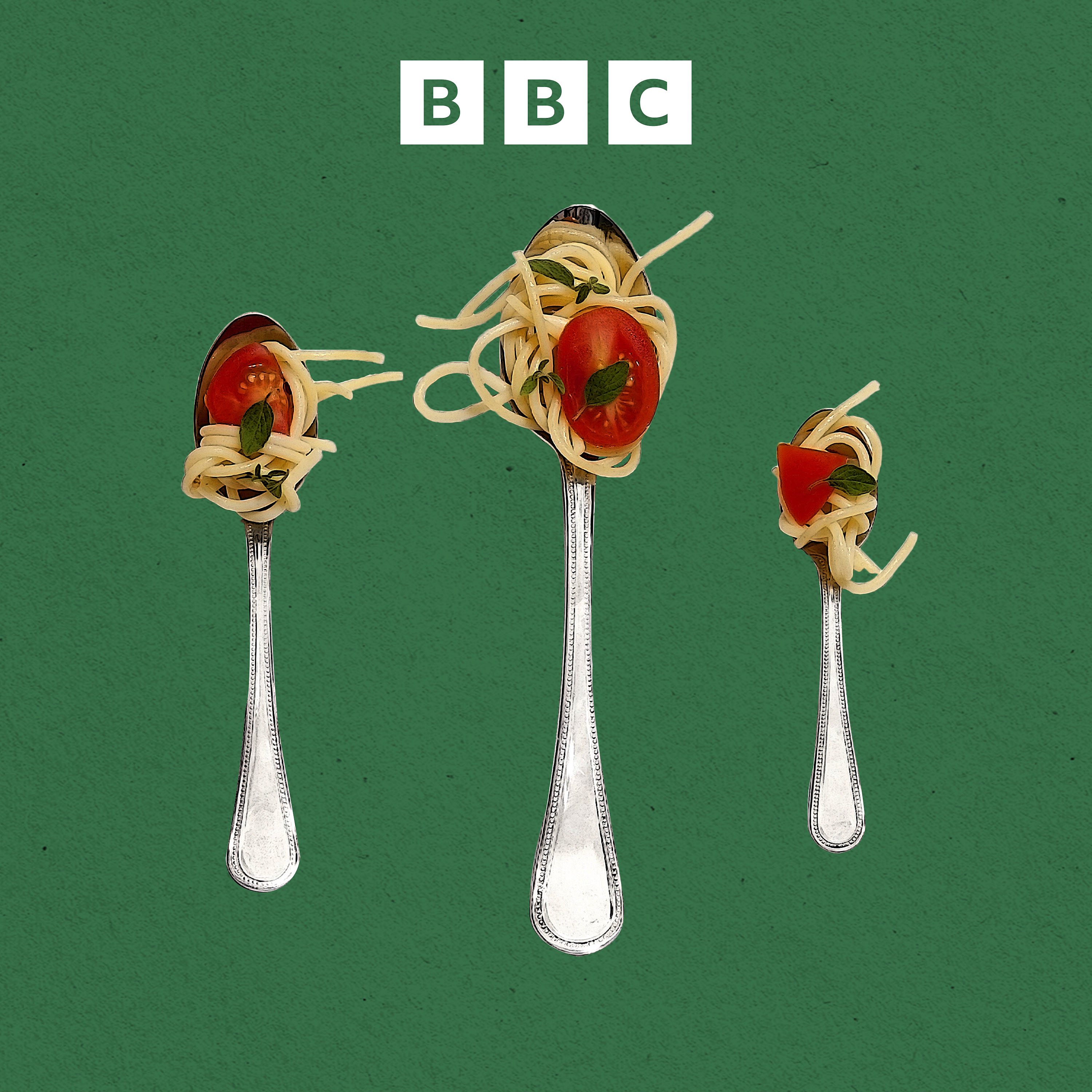



This recipe makes me want to recreate the smoky flavors at home. For people who want an easy comparison between grilled pork and fast-food burger options for a cookout, a menu overview saved me time when planning orders: https://carlsjrmenus.com/ — useful for planning sides and burgers to complement rich rubs.
Love how you broke down the spice levels — this recipe would go nicely with crisp, refreshing sides. For a meal that balances out smoky meat, I often check deli offerings to pick salads or simple sandwiches as contrast. See Jason’s Deli menu and prices here: https://jasonsdelimenuwithprices.com/
Great breakdown of spices and ratios — I’ll try this on pork and maybe even a crispy fried chicken sandwich. If you’re pairing bold rubs with a burger night, it’s handy to preview chain menus and prices so you know what sides or combos to grab. Here’s a quick Carl’s Jr. menu reference: https://carlsjrmenus.com/ .
The Steers Menu offers tasty flame-grilled burgers, crispy chips, chicken meals, and milkshakes for everyone. You can choose from beef, chicken, or vegetarian options, as well as family meals and combo deals. Whether you want to eat in, take away, or order delivery, the Steers Menu has something delicious for every taste. https://steersmenus.co.za/
Panera Bread https://panerabread-menus.info/ food that people love every day. The restaurant chain offers sandwiches, soups, salads, and baked goods across thousands of locations. Customers visit Panera for quick lunches, family dinners, and morning coffee. The menu features comfort foods like mac and cheese alongside healthy choices like grain bowls. Fresh ingredients go into every dish. Panera makes bread daily in each cafe. The bakery items include cookies, muffins, and pastries
https://chilismenue.com/chilis-crispy-chicken-crispers-combo/ Chicken is the perfect combo of crunch and spice—definitely one of the standouts! If you're craving more bold flavors like this, check out my website Chili’s Menu, where you’ll find the Complete listing of Chili’s meals for 2025. There’s something for everyone
The Food Chain dives into such an essential and often overlooked part of our daily lives—how food moves from source to plate, shaped by science, culture, and business. It’s fascinating to think about all the factors involved, from farming practices to global logistics. And when you consider fast-casual chains like Zaxby’s, you really see that intersection in action. Zaxbys menu ( check here> https://zaxbysmenu.us/ ) especially the fresh Zalads, hand-breaded chicken, and signature sauces—reflects thoughtful sourcing and preparation that satisfies both flavor and convenience. It’s a modern example of how the food chain can deliver quality while catering to fast-paced lifestyles.
Join smakjakten and explore svenskt godis i USA! Discover the best of svenskt godis USA – sweet, salty, and delicious!https://smakjakten.se/rioja-spaniens-vinregion-med-sjal-historia-och-gastronomi/
Great News https://inhomesdirect.co.uk/
Arby’s has built its https://arbysroastbeefmenu.com/ on serving up some of the best roast beef sandwiches in the fast-food game. Known for its freshly sliced, tender roast beef, Arby’s continues to deliver on taste, quality, and variety
that Nigerian man is dodgy with his taking free meals and writing reviews on them. then his "announcements" that sound like reviews but aren't...
"The Food Chain" on https://menuspot.uk/ refers to the range of restaurant options and menu choices available, helping customers explore different food offerings across various eateries in the UK.
Great! Since Arby’s Roast Beef Menu offers food and drinks, we can explore new product ideas, marketing strategies, or https://arbysroastbeefmenu.com/ your brand
golden blitz
can you do a podcast on discounts at Sonic. discover them at https://sonicdrivemenu.com/sonic-deals-and-promo-codes/
Could you clarify what you meana b by "Claim Ownership The Food Chain"? Are you referring to ownership of usiness, a https://mcdonaldwrapoftheday.uk/ chain, or something else? Let me know so I can assist you better
The Applebee’s Happy Hour Menu offers great deals on drinks and appetizers, making it a favorite spot for budget-friendly dining. Available at select hours, it features half-priced appetizers like boneless wings, mozzarella sticks, and spinach artichoke dip. Guests can also enjoy discounted beers, cocktails, and margaritas, perfect for unwinding. https://applebees-happyhour.com/
Have you ever thought about the desi food? I would recommend every foreigner to taste these types of food and check menu from https://steersmenu.com/, you will love the taste.
The Whataburger menu in the USA offers a wide variety of delicious options to satisfy your cravings. Known for their iconic burgers, they serve everything from the classic Whataburger to flavorful specialties like the Mushroom Swiss Burger and the Spicy Jalapeño & Cheese Burger. https://whatburgermenu.us/
The Whataburger menu in the USA offers a wide variety of delicious options to satisfy your cravings. Known for their iconic burgers, they serve everything from the classic Whataburger to flavorful specialties like the Mushroom Swiss Burger and the Spicy Jalapeño & Cheese Burger. You can also enjoy chicken sandwiches, fresh salads, and crispy chicken strips.Whataburger Menu